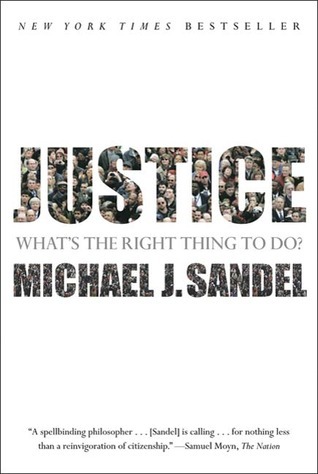Nozick believes this scenario illustrates two problems with patterned theories of distributive justice. First, liberty upsets patterns. Anyone who believes that economic inequality is unjust will have to intervene in the free market, repeatedly and continuously, to undo the effects of the choices people make. Second, intervening in this way—taxing Jordan to support programs that help the disadvantaged—not only overturns the results of voluntary transactions; it also violates Jordan’s rights by taking his earnings. It forces him, in effect, to make a charitable contribution against his will.
Welcome back. Just a moment while we sign you in to your Goodreads account.


